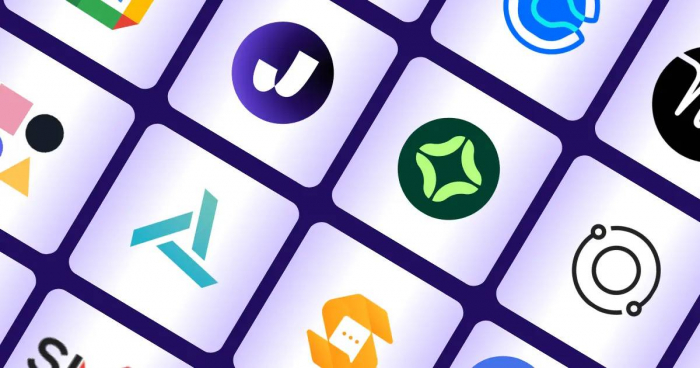The digital revolution has fundamentally reshaped the entertainment landscape, and the online casino, or iGaming, industry stands as one of its most technologically sophisticated sectors. At first glance, an online casino might appear to be a straightforward collection of slot machines and table games, but beneath the vibrant graphics and user-friendly interfaces lies a complex, multi-layered ecosystem of software designed to ensure fairness, security, and a seamless player experience. Understanding how this intricate machinery operates is key to appreciating the modern digital gaming world.

The foundational technology is a vast departure from the physical casino environment. Rather than relying on mechanical reels or human dealers for every single game outcome, the digital casino relies on a powerful combination of Random Number Generators (RNGs), secure server architecture, and advanced application programming interfaces (APIs). Every time you hit the "Spin" button on a slot or watch the virtual dice roll in a craps game, a high-speed, invisible calculation takes place on a remote server. This instant, verifiable calculation is what powers the entire industry and allows it to offer a dynamic, real-money experience 24/7. For players looking for a trusted, action-packed digital experience, the quality of this underlying technology is crucial, and it's what ensures that platforms like nightrush can deliver a reliable service. This complex backend management is the silent star of the show.
The Heart of Fairness: The Random Number Generator (RNG)
The single most critical piece of software in any legitimate online casino is the Random Number Generator (RNG). This algorithm is the digital equivalent of a deck of cards being shuffled, a roulette ball spinning, or dice being rolled. Its purpose is singular: to generate outcomes that are completely random, unbiased, and unpredictable.
How a Pseudo-RNG Ensures Randomness
The vast majority of online casino games, particularly slots and virtual table games, utilize a Pseudo-Random Number Generator (PRNG). It’s important to understand why the term "pseudo-random" is used:
- It’s an Algorithm: Unlike a True Random Number Generator (TRNG) which might use physical processes like atmospheric noise, a PRNG is a mathematical formula. It starts with a seed number (a starting value) and then executes a sequence of complex calculations to produce a long, non-repeating sequence of numbers.
- Speed and Security: This process is incredibly fast, generating thousands of random numbers per second, even when no one is actively playing. The outcome of a game—say, where the slot reels stop—is determined by the number in the sequence that the system grabs at the precise millisecond you click "Spin."
- Unpredictability: While the formula itself is deterministic, the seed and the speed of the process make it practically impossible to predict the outcome. The result is the statistical randomness required for fair play.
Auditing and Integrity
For an online casino to be licensed and considered trustworthy, its RNG must undergo rigorous testing by independent, third-party auditing firms like eCOGRA, iTech Labs, or Gaming Laboratories International (GLI). These audits verify that the RNG is truly random, adheres to the game’s stated Return to Player (RTP) percentage, and has not been tampered with. This certification is a key pillar of trust in the iGaming world.
The Architecture: Platform and Server Technology
The RNG is just one piece; the entire casino experience is built upon a robust, scalable technical platform. This platform is the central nervous system that manages everything from player accounts and security to the delivery of the games themselves.
Core Software Components
- Player Account Management (PAM) System: This is the administrative hub. It handles user registration, log-ins, player verification (Know Your Customer or KYC), bonus eligibility, and crucially, the player’s digital wallet, which tracks deposits, withdrawals, and current balances.
- Game Aggregator: No single company creates every game on a major platform. Instead, the core platform uses a Game Aggregator—a sophisticated piece of software that integrates hundreds or even thousands of games from dozens of different software providers (game studios) via a single API. This allows the casino to offer a massive library of content while managing all the data through one central system.
- Security Layer: Due to the exchange of money and sensitive personal data, security is paramount. All data transmission is secured using SSL/TLS encryption (the same technology banks use). Advanced fraud detection systems constantly monitor betting patterns and transactions to prevent illicit activities.
The Role of White Label Platforms
Launching a full online casino requires massive capital and time investment in licensing, compliance, and platform development. This is why many operators choose to use white label platforms. These are turnkey solutions provided by established technology firms that offer a complete, ready-to-launch casino system, including the core PAM, the game aggregator, payment processing, and even a pre-approved license. This drastically lowers the barrier to entry, allowing new brands to focus solely on marketing and player acquisition, rather than building the complex software from the ground up.
Game Delivery: From Virtual to Live
Modern iGaming software must support two fundamentally different ways of delivering games: the virtual/RNG-based model and the real-time, human-led model.
Virtual Games and the Game Engine
For virtual games like slots and video poker, the Game Engine is what makes the experience enjoyable. It's responsible for the game’s logic, the 3D graphics, the sound effects, and the overall feel. It communicates with the RNG on the server to retrieve the outcome and then renders the visual result—the spinning reels, the dealt cards—on the player's screen. The speed of modern internet and mobile processing power allows these games to rival AAA video game quality, making for a truly immersive experience.
Live Dealer Technology: Bridging the Gap
Live dealer games represent a technological marvel that bridges the gap between digital convenience and the physical casino.
- Real-Time Streaming: The core is high-definition video streaming from a dedicated casino studio. This requires low-latency, high-bandwidth infrastructure to ensure the player sees the action unfold without delay.
- Optical Character Recognition (OCR): This technology is the key to integration. Cameras in the studio use OCR to instantly read the results of the physical action—the value of a dealt card, the number the roulette ball lands on—and convert that information into digital data.
- Digital Interface: This OCR data is then projected onto the player's screen, allowing their virtual chips and interface to register the outcome and payout the winnings in real-time, combining the trust of a physical game with the convenience of an online wager.
Conclusion: An Ecosystem of Innovation
The online casino is a sophisticated digital ecosystem driven by continuous innovation. It’s an industry where fair play is non-negotiable, enforced by audited RNGs, and where player experience is maximized through seamless mobile compatibility and engaging content aggregation. From the silent, lightning-fast calculations of the server-side RNG to the real-time video delivery of live dealer tables, the technology ensures that the digital world of iGaming is not just convenient, but robust, secure, and ready to provide a world-class entertainment experience.
Post Comment
Be the first to post comment!





